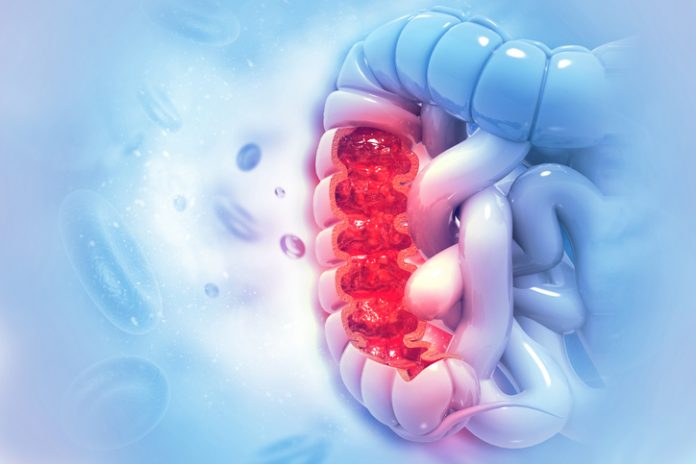
Researchers from the University of Michigan Rogel Cancer Center have published new research in the journal Gastroenterology, showing that a low-protein diet disrupts a nutrient signaling pathways in cells that is a driver of colon cancer.
The research focused on one of the most important cellular nutrient sensing molecule called mTORC1. This molecule allows cells to sense different nutrients to allow them to grow and proliferate. But when nutrients are limited, cells dial down nutrient sensing cascade and turn off mTORC1.
mTORC1 is also known to be highly active in colon—and other cancers— and is known to cause cancer to become resistant to standard treatments, so the investigators sought to discover whether colon tumors hijack nutrient sensing pathways to fire up mTORC1.
“In colon cancer, when you decrease the nutrients available in the tumors, the cells don’t know what to do,” said Yatrik M. Shah, PhD, professor of Physiology at Michigan Medicine and senior author on the paper. “Without the nutrients to grow, they undergo a kind of crisis, which leads to massive cell death.”
Of particular interest to the team was how the GTPase activity towards Rags (GATOR), which works with mTORC1 to keep it functional, changed the nutritional signals within cells. GATOR2 has been shown to activate mTORC1 when cells have an abundance of nutrients, while GATOR1 deactivates mTORC1 when nutrients are low.
For this reason, mTORC1 has been targeted by potential cancer therapies that have sought to block its cancer-causing signals. This approach, however, comes with significant side-effects, and when patients stop taking therapies that block mTORC1, their cancer reemerges.
The University of Michigan team sought a different method of regulating cell growth by identifying loss of function mutations of the GATOR1 complex that altered expression of amino acid sensing pathways that are predictive of poor patient outcomes.
“We show that dysregulated amino acid sensing induced mTORC1 activation drives colon tumorigenesis in multiple mouse models,” the researcher wrote. “We found amino acid sensing pathways to be essential in the cellular reprogramming of chemoresistance, and chemotherapeutic resistant colon cancer patients exhibited deregulated amino acid sensing.”
This finding suggested that blocking the nutrient pathway by limiting amino acids through a low-protein diet offers an alternative way to shut down mTORC.
“We knew that nutrients were important in mTORC regulation, but we didn’t know how they directly signal to mTORC. We discovered the nutrient signaling pathway is just as important to regulate mTORC as the oncogenic signaling pathway,” said first author Sumeet Solanki, PhD, a research investigator at the Rogel Cancer Center.
Researchers confirmed their findings in cell and mouse models, demonstrating that limiting amino acids stopped the cancer from growing and led to increased cell death. The team examined tissue biopsies from patients with colon cancer, which confirmed high markers of mTORC correlated with more resistance to chemotherapy and worse outcomes. Solanki noted that this could provide an opportunity to direct treatment for patients with this biomarker.
“A low-protein diet won’t be standalone treatment. It has to be combined with something else, such as chemotherapy,” Solanki said.
The researchers noted that putting patients on a long-term, low-protein diet has its own complications, including muscle weakness and weight loss, already a problem with many cancer patients. Instead, the team hopes to further refine its research to identify a more limited therapeutic window when doing this to limit amino acids will be more beneficial in obstructing tumor development.
Additional studies will also seek to understand how these pathways are creating resistance to treatment and whether an inhibitor could block the GATOR complexes.













